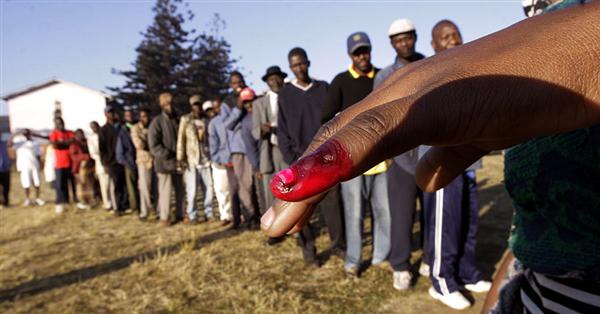
AND so it begins. The build-up to elections in Zimbabwe has many worrying hallmarks of previous flawed polls.
Opinion by Diana Games
President Robert Mugabe is still ruling by decree when it suits him, as the unilateral declaration of the July 31 election date shows; Zanu PF is still using its State-owned propaganda machine to distort information and undermine its partners in the unity government; it is still using the courts to support favoured outcomes; election registration is encountering delays in urban areas, traditionally a stronghold for the opposition parties; and non-African countries offering observer missions are being told to “go to hell”.
Non-governmental organisation Crisis in Zimbabwe Coalition’s report released last week predicted there will be less violence than in the previous election because Zanu PF can “leverage” the fear it instilled in the run-up to the 2008 poll, in which more than 200 people died and thousands were tortured.
Thugs no longer have to burn down villages in rural Zimbabwe housing suspected MDC supporters in order to get people to vote for Mugabe as they did in 2008; they simply have to wave a box of matches in the faces of victims of previous election violence.
A key outstanding issue ahead of the election is reform of the security sector.
Army generals continue to openly state their allegiance to Zanu PF, rather than the State.
A new report by Human Rights Watch on Zimbabwe’s security sector says the army has deployed hundreds of soldiers across the country since February, ostensibly to undertake community projects, but in practice to intimidate villagers into voting for Zanu PF.
- Chamisa under fire over US$120K donation
- Mavhunga puts DeMbare into Chibuku quarterfinals
- Pension funds bet on Cabora Bassa oilfields
- Councils defy govt fire tender directive
Keep Reading
The issue of election observers is still not settled. Mugabe says only Africans may observe the poll. African Union (AU) observers have already landed in Harare.
The AU says the team is being “briefed” ahead. It’s hard to believe Mugabe’s security men will not have a direct hand in the briefings. There have been many changes in Zimbabwe over the term of the unity government. The successful vote on a new Constitution gave many hope of a similarly conducted election. However, the election stakes are much higher and many of the factors that have undermined previous polls are still in place. It is almost impossible for sufficient reforms to ensure a free and fair election to be implemented in two months or less.
The State media, controlled by Zanu PF, has already said the Constitutional Court is unlikely to agree to the two-week extension of the election to August that regional leaders have asked Mugabe to secure. One newspaper reported “Sadc upholds July 31 election date” in clear contradiction of the facts.
An early election has been on Mugabe’s agenda for some time. The slow pace of implementing reforms agreed to by the main political parties at the formation of the unity government has been largely a consequence of Zanu PF’s passive resistance. Thus, the electoral process remains in favour of Zanu PF.
Prime Minister Morgan Tsvangirai has said he will veto any election date that comes before media, security and electoral reforms are made. But the horse has already bolted. Once again, the MDC parties are on the back foot. Tsvangirai was not consulted on the date — another sign that this is Zanu PF’s decision.
A legitimate election result is crucial if Zimbabwe is to move forward. The processes leading up to the event will form part of that legitimacy. Whether the election goes ahead in six weeks, as favoured by Mugabe, or eight weeks as suggested by the region, there are already many question marks hanging over it and the fear is that we might just end up with more of the same.
Article first published by BDLive
Games is chief executive of Africa @ Work, a consultancy focusing on African business.










